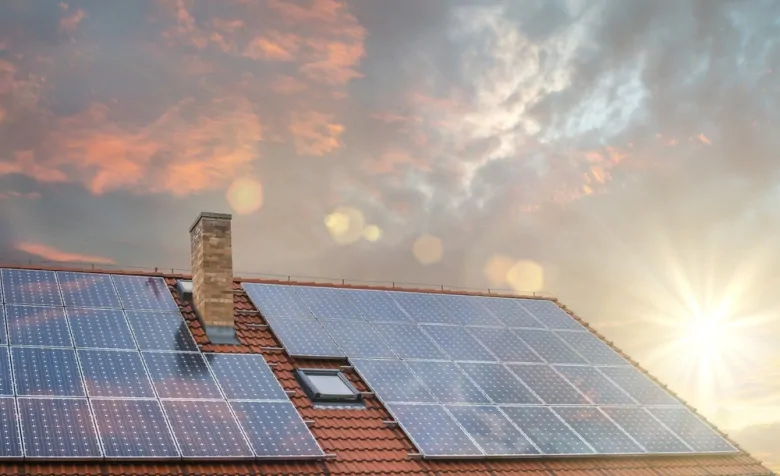Interest in off-grid homes growing, but mortgages haven't kept pace

A growing number of Nova Scotians are considering an off-grid home, driven by factors like electricity outages and storms, as well as a desire to be environmentally friendly.
But in many cases finding the money to buy or build can be tricky, as most lenders still consider off-grid homes to be too risky to finance.
Dave Angot, the owner of solar installation company Doctor Solar, estimates about 30 to 40 out of every 250 customers are interested in going off-grid.
“Now we find that more than 10 per cent of our customers will ask the question and want a power supply and a battery backup just simply for grid outages. It used to be very seldom that someone would request that, and now it’s starting to become a material percentage,” he said.
He said in past years the few requests for off-grid installations he did get were usually for homes being built in secluded areas such as oceanfront properties far from the electricity grid. That’s changing now.
“There’s off-grid because of distance from grid, but there’s also people who want more robust self-provided energy when the grid goes down,” he said. “That’s been the biggest spike in interest — battery storage and being able to operate off-grid even though the grid is there.”
However, converting to solar or building a house that runs on solar energy can be a significant expense. Cost can be a challenge for potential buyers or builders, as banks are often hesitant to finance off-grid homes.
“I think certainly in the last few years we’ve definitely come across requests for this type of financing more and more,” said Don MacMillan, the interim vice-president of the Canadian Mortgage Brokers Association Atlantic.
However, the requests are still relatively rare and mortgage brokers aren’t able to place mortgages for off-grid homes as often as they’re requested.
“Many lenders just will not do them, period,” he said. Some lenders have a policy of only financing properties with electricity and water service.
“Typically, off-grid housing, the only ones that I’ve personally been aware of actually going through has been through a local bank or a local branch where they have done it not as a mortgage loan but as a personal loan,” he said.
A personal loan is typically charged at higher rates than a mortgage loan, he adds. Banks and other lenders are often unwilling to take on a traditional mortgage for an off-grid home because they regard it as higher risk.

“The biggest risk with it is the marketability,” he said. “Because the insurers and the lenders look at it as, in the event — which obviously we hope never happens — but if they had to take a property back through a foreclosure action, the fear is that an off-grid house or property is very much more difficult to market and sell than a house on the grid.”
MacMillan said the situation might change in the future as demand goes up.
Jennifer Corson, an architect at Solterre Design, a Halifax company that specializes in green buildings, has also seen the growing interest in off-grid living. She’s experienced it first hand through an off-grid “concept house” her family uses on Second Peninsula in Lunenburg County.
“I think a lot of people are wanting to be a bit more independent or self-sufficient when we’re being faced with power outages that we’ve been having in the last few years,” she said.
People on Second Peninsula were without power for between six and eight days following Hurricane Dorian in September, and the concept house became a place where Corson’s neighbours came to charge phones and boil water.
The concept house has a commercial mortgage held by Corson’s company, which was possible thanks in part to the performance standards Solterre used in the construction. The house will never freeze even if all the backup systems fail, she said.

There is some funding available to homeowners in Nova Scotia. The most recent version of the provincial SolarHomes program kicked in Nov. 1. It is administered by Efficiency Nova Scotia and allows a maximum rebate of $6,000 on new home construction or conversion.
Angot said the customers he’s serving often have no interest in dealing with the hassle of a generator to provide emergency power and are turning to solar to see them through possible power outages.
“That’s what we’re seeing a lot, especially demographically, people that are retired and nearing retirement. They tend to want a simple solution. Some people are operating medical equipment that you have to have access to some power. That’s starting to become really important,” he said.
Corson hopes with good building techniques and more information for lenders, more off-grid homes will be possible.
“I think there’s some educating along the way,” she said. “The appraiser that we worked with, with our company, could see that there’s a potential negative in terms of marketability of it being off-grid, but there’s also a positive in its independence and self-sufficiency.”
MORE TOP STORIES





